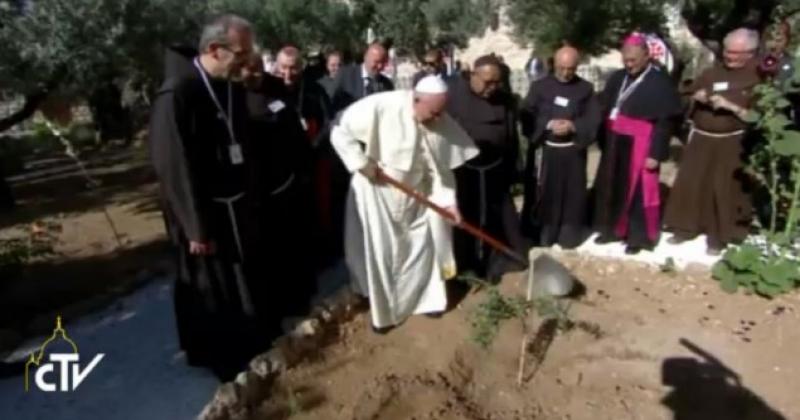A powerful initiative of faith and peace was at the heart and centre of a surprising and courageous journey, following in the unforgettable steps of Paul VI’s pilgrimage half a century ago. This sums up Pope Francis’ itinerary in the Holy Land, an event of prime importance that aroused scores of comments even before it concluded. As the Pope predicted, we will need to reflect more deeply on these days — days so full of appointments yet so focused, days in which religion and politics were interwoven, as had been foreseen.
Yet it was not an untoward interweaving, as often happens in history. On the contrary, it was a meeting between two dimensions that seem to be opening up to unexpected developments: opening based on the need to purify religion of every kind of abuse, especially the use of violence in the name of faith which, in reality, only offends the name of God; and from the temptation to fundamentalism which is present, and which has devastating effects on minorities in areas where religious freedom — a basic human right — is impinged or limited.
The topics of violence, especially that which claims to be inflicted in the name of God, and of religious freedom were evoked at the meetings in Jordan as well as at those in Bethlehem and Jerusalem, each charged with ancient and living symbols. The Bishop of Rome was concerned especially with looking to the future. “Violence is overcome by peace”, he said with great clarity to young Palestinians, the victims of unbearable situations. He asked them not to allow themselves to remain prisoners of the past, but to build a different future with courage and dignity.
The impression is that Francis’ concern was truly understood, and he commended the personal commitment of King Abdullah II and of Presidents Mahmud Abbas and Shimon Peres in this regard. An initial serious confirmation of this is the upcoming encounter of prayer in the Vatican, in the home of the Pope, between the Presidents of the two peoples — the Palestinian and the Israeli — who must find a path to peace. In this, the different religions must inspire politics, as the King, Mahmud Abbas and Peres repeated in different ways. Each of them recognized in the Pontiff a true “bridge builder” between men and religions — an authority that can transform reality.
Thus the Pope — during the important meeting with the Israeli President, whom he called “a wise and good man” — spoke of the need for a creative patience that can overcome the bloody and troubling conflicts in the Holy Land and in other regions of the world. To this end, in order to counter all violence and show visible closeness to those who suffer, Francis prayed before the Wall in Bethlehem, remembering the victims of terrorism in Israel and offering moving homage to the victims of the unspeakable tragedy of the Shoah. And before the Western Wall he left an ‘Our Father’, which he had recited with Patriarch Bartholomew in front of the Holy Sepulchre, the true heart of this journey in search of peace.
